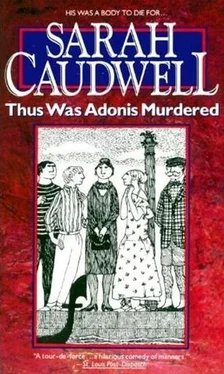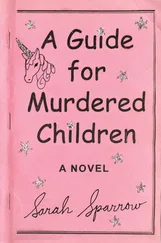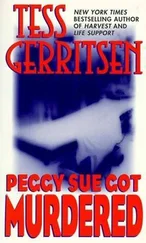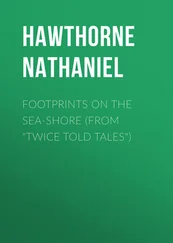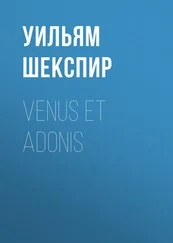“More than that, surely,” said Ragwort. “We know there’s a definite connection between Eleanor and Kenneth Dunfermline, and therefore between Eleanor and the dead man.”
“Yes,” said Cantrip. “And we know the Major deals in stolen goods. I mean, if the Italian fuzz think that’s respectable—”
“He hasn’t got a criminal conviction,” said Selena. “The Vice-Quaestor is going to say it’s mere gossip.”
“Well,” said Cantrip, “there’s always the holdall. We know he pinched that.”
I pointed out that if Cantrip had been listening to me on Monday evening he would have heard me mention that the Major had not stolen the dead man’s holdall.
“I was listening, Hilary,” said Cantrip. “But I thought you were just having a loopy spell, due to spending too much time in the Public Record Office or something, so I thought I'd do the tactful thing and not draw attention to it.”
“The Major,” I repeated, “did not steal the dead man’s holdall.”
“He jolly well did,” said Cantrip. “I saw him do it. You’ve got first-hand evidence from a member of the English Bar and if you’re going to start casting aspidistras on its reliability—”
“My dear Cantrip,” I said soothingly — for one knows that he is inclined, when heated, to start throwing books at one—“my dear Cantrip, I am not for a moment doubting your word. I am saying merely that in interpreting the evidence you have considered it in part, rather than as a whole. It is a pitfall not easily avoided save by the trained scholar.”
“Hilary,” said Selena, handing me a cup of coffee, “we are supposed, as you are very well aware, to be working. You have now, however, aroused in us a curiosity which will prevent our doing so until you have explained your theory, whatever it may be, about the holdall. Please be kind enough to do so with all expedition.”
“Do you remember,” I asked, not resenting her asperity, for I knew her to be under strain, “Julia’s first letter?” They nodded. “You will recall, then, that Julia identified the Art Lovers among her fellow passengers by looking at the labels on their hand luggage. Including — indeed, beginning with — the Major. From which we may conclude that on the journey out the Major had something with him which the airline was prepared to regard as hand luggage. It was not a day, as we know, on which a broad view was being taken — they had disallowed Julia’s suitcase. Now, when we saw them returning to Heathrow, the Major had two pieces of luggage: one was a large suitcase, which even the most permissive airline would not have permitted him to have in the passenger compartment; the other was the holdall believed by Cantrip to be the property of the murdered man.”
“Well,” said Cantrip, “if the Major had another case with him, he must have left it behind in Venice and taken the holdall instead.”
“Why in the world should he do that?” I asked.
“Whatever you say, Hilary,” said Cantrip, “it had the dead chap’s name on the label.”
“From which we may conclude,” I answered, “either that the Major had stolen the holdall; or that he had stolen the label.”
They sipped their coffee and looked thoughtful. “Why,” asked Ragwort, “should he do that?”
“Let us suppose, my dear Ragwort, that you have an object which you wish to take through Customs and the discovery of which will occasion a certain embarrassment. Would it not be prudent, in those circumstances, to ensure that if the case containing it happens to be opened by a Customs official the name on the label is that of someone other than yourself? Someone, naturally, traveling in the same group, so that it will remain with your own luggage and can easily be reclaimed at the end of the journey if nothing untoward has taken place.”
“Yes,” said Ragwort. “Yes, I can see that it might be. But why do you assume that the label is stolen, Hilary? Why not simply get a blank label and write someone else’s name on it?”
“You would want to use one of the labels supplied by the travel agents, who generally give only two to each passenger. Yours, it is to be assumed, already have your own name on them. Besides, you would have the difficulty of forging the handwriting. No, I am fairly sure that you would want to steal the label. And that, I suggest, explains the Major’s surreptitious visit to Ned Watson’s room on Friday morning.”
“It’s quite ingenious,” said Selena. “And I’m perfectly prepared to believe that the Major had something he wanted to smuggle out of Italy. What I don’t understand, Hilary, is why you think it’s that painting that was stolen in Verona. When an antique dealer of dubious character has been rummaging round in Venice for a week, there are surely a great many other things—”
The telephone on Ragwort’s desk emitted the bad-tempered buzz which indicates a desire to attract attention on the part of someone in the Clerks’ Room. Answering, he was told by Henry, in tones of the utmost gloom, that the young American lady was here again and on her way up to see him.
“It seems,” said Ragwort, replacing the telephone, “that Marylou is paying us another visit. I wonder why.”
“Possibly,” I said, “because I asked her to.”
“Hilary,” said Ragwort, “that really is a bit much.” But the girl’s arrival precluded further protest: he was obliged instead to express his pleasure at seeing her again; to offer her a chair; and to ask Cantrip to find another cup.
“My dear Marylou,” I said, “how kind of you to come so promptly.”
“Please don’t mention it, Professor Tamar,” she answered, with the charming deference which she had shown at our first meeting. “If there’s anything I can do to help Julia — have you any news of her?”
“Not yet,” I said, “but we are expecting further developments very shortly. Did you manage, I wonder, to find the book I spoke of?”
“Why, certainly,” said Marylou, taking from her large and expensive shoulder-bag a guide book to the city of Padua.
“Oh,” asked Ragwort, looking surprised, “did Julia lend you that as well?”
“No,” answered the girl. “It’s one we got on the visit to Padua. But Professor Tamar called and asked me—” she paused, looking at me as if seeking my permission to disclose what had been said.
“I was anxious,” I said, “to have a brief glance at the guide to Padua. It is almost impossible in London to obtain individual guide books to the smaller Italian cities, and your copy, Ragwort, so far as I know, is still with Julia. Since Marylou was the only other person I knew who had recently visited the city, I rang her to ask whether by any chance she had acquired a guide book. She told me that she had and has now very kindly brought it round.”
“Hilary,” said Cantrip, in a tone which he seemed to believe soothing, “you’re having another of your loopy spells. Nothing happened in Padua. Verona was the place where the picture got stolen.”
“Thank you, Cantrip,” I said, “I am well aware of that.” I began to look through the index to the guide book.
There was another irritable buzz from the Clerks’ Room, answered again by Ragwort. “There’s a telephone call for you, Cantrip,” he said. “I’ll say you’ll take it in Selena’s room, shall I?” The index proving less informative than I had hoped, it took me some little time to find the passage I required and to confirm my expectation of its content. I had just done so when Cantrip returned.
“That was the Major,” he said. “He says he’s got the painting.”
Or something, at any rate, which seemed to the Major, from the works of reference he had consulted, to be remarkably like it. As he had promised, he had asked around among his mates about the stolen picture; none of them knew anything about it; but one, by an extraordinary coincidence, had discovered a virtually identical painting while clearing out his attic the previous week. It was not for the Major to disbelieve his friend’s story. Still less was it for the Major to tell Cantrip that it was in fact the painting stolen in Verona — if that had been the case, and if the Major had known it to be the case, it would of course have been his duty to inform the police. On the other hand, strictly between Cantrip, himself and the gatepost, he thought, if Cantrip’s uncle were to come and have a look at it, that he might be very struck by the resemblance.
Читать дальше
